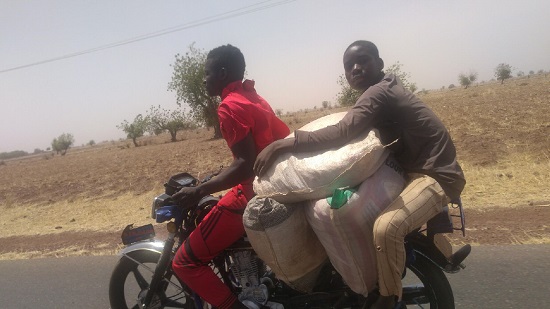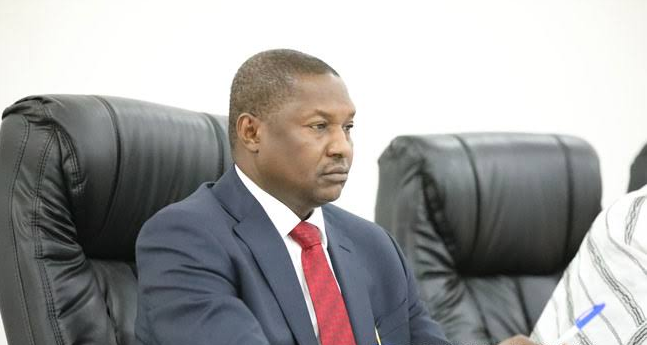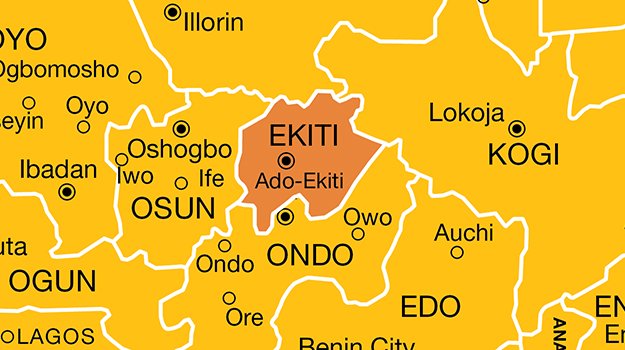Investigative journalist, Tunde Omolehin, travelled to Konni, Niger Republic — a town which shares borders with Nigeria – through Illela, Sokoto state, to get a first-hand account of how smugglers use animals and other means of transportation to aid movement of contraband on a daily basis. His findings showed that smuggling is thriving despite the federal government’s closure of land borders.
Disguising as a trader, Omolehin interacted with bike riders, residents and those who are part of the smuggling chain.
I arrived at Illela, a border town with Niger Republic, and about 96 kilometres downward Sokoto on a hot Sunday morning. At the centre of the city, there is a security post housing various border guards that include officials of the Nigeria Customs Service, Nigeria Immigration Service and other agencies saddled with the responsibility of manning the country’s borders. Adjacent the security post is the famous Kara, a livestock market that plays host to transborder traders across West African countries.
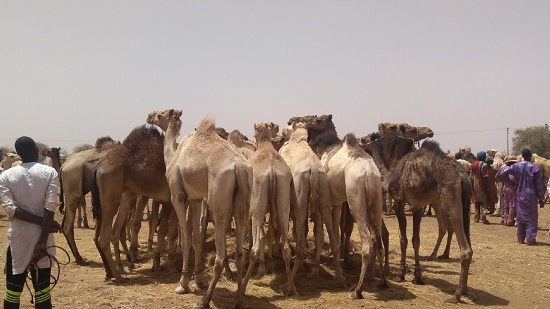
Standing in the company of a guide, I took ample opportunity to observe the influx of motorcycle operators shuttle to and from different directions. The motorcycles were either decked with heavy, wrapped luggage or carried more than one passenger as they raced towards Nigeria’s border linking Niger Republic.
Advertisement
“These people are going to Konni town in Niger Republic. It’s just a stone’s throw from where we are standing,” Dauodu Aboubakar, a middle-aged Nigerien, told the reporter.
In August 2019, the federal government had closed land borders across the country to check smuggling but findings show that smugglers have carried on with their activities within border communities.
It was already past 10am, and with the help of my guide, I flagged down an available commercial motorcyclist. We intended to contract him for a ride across the border. That seemed like the readily available means of transportation for those who wished to make a crossover to Niger Republic. Since the closure of the borders, Illela town has been a business hub for motorcycle riders who ply border the routes to eke out a living. Residents said the relatively bubbly town has witnessed an unprecedented influx of motorcyclists in recent times.
Advertisement
I introduced myself as a rice retailer who arrived from Sokoto and needed a trusted motorcycle rider. I “confessed” my intention to smuggle about 50 bags of rice from Konni town to Sokoto, where it will be moved to Port Harcourt, Rivers state. As I was spelling out the task before the man who identified himself as Nuhu Adamu, I could feel the excitement.
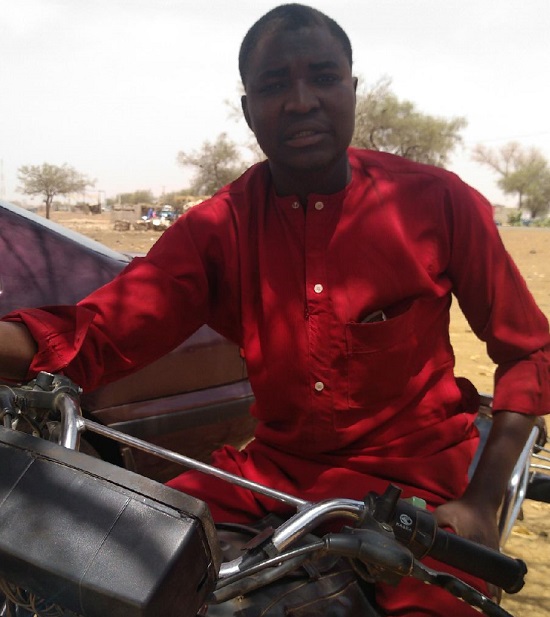
“No problem. I can connect you with the main rice dealers in Konni. We have many of them but there it is this Alhaji who will supply all your needs. Even, if you want other goods like vegetable oil, frozen chicken and ‘okrika’ (second-hand clothes), the man will supply your needs,” Adamu interrupted.
Ferrying passengers or goods with commercial motorcyclists is a routine task and common scenario in Illela. The youth in their hundreds were a mix of Nigeria and Niger nationalities, living within the border communities trying to make a living. The motorcyclists also used the many available porous routes to move contraband across both territories. Adamu, who appeared to be in his late 30s, is a typical example. He was delighted to be part of a smuggling plan initiated by this reporter. If properly executed, that could fetch him some “reasonable” money.
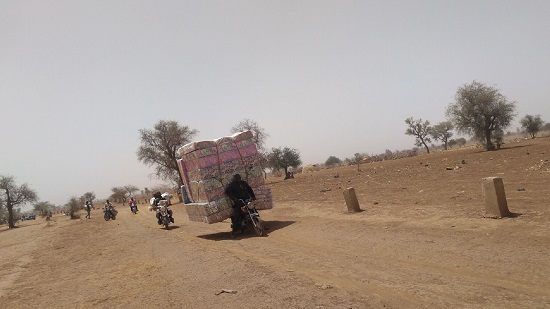
The government of Niger Republic had not restricted movement within its territory, or banned movement of goods across the borders, and this seems to have further complicated the closure of Nigeria’s territories.
Advertisement
MANY ROUTES, ONE DESTINATION
After agreeing to part with N1,000, a rare and exorbitant fare for conveying two passengers across the town border, we set out on the journey to Konni through a dusty road. The trip turned out to be an unpleasant one with multiple motorcyclists manoeuvring their way through the slippery and bumpy sand dunes. Due to Adamu’s experience, we were always on a safer track. On the road leading out of Illela are three illegal checkpoints manned by security operatives of both countries.
Stopping motorcyclists for mandatory checks was a herculean task for these security agents. At each checkpoint, motorcyclists were seen moving in all directions, especially those with heavy loads. However, most of them made a stopover to pay the “gate fee” of N200, while those carrying passengers only stopped for routine scrutiny by the security.
“We are stopping over there (the bike rider pointed at a security post a few metres away). In case if they (security agents) ask you what your mission is. Just tell them you want to visit a relation in Konni town,” he explained, adding that the logic is to avoid extortion since we were not with any valid travel documents. He listed an ECOWAS passport or a residence permit as a simple requisite to escape extortion at various security posts.
Advertisement
Historically, there are strong marital ties that link communities in both countries. Such inter-cultural relationships that exist between the border towns and neighbouring countries affect the fight against smuggling, according to findings by TheCable. There is an alliance between smugglers and the locals who often render themselves as informants to aid them perpetrate their activities across the borders.
Lawan Zayyanu, head of Gwabadawa district, traced the marital bond between the two countries to 18 centuries ago when Usman Dan Fodio, a religious leader, migrated from Marata town in present Niger Republic to establish Sokoto caliphate in Nigeria.
Advertisement
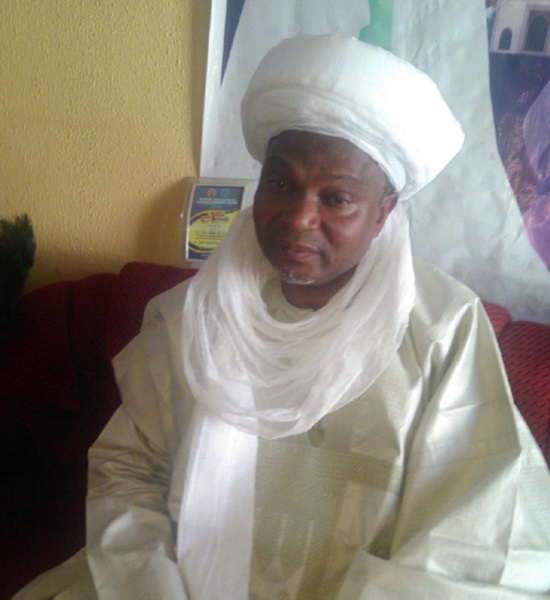
“There is evidence of marital bond between the two countries and this could be dated to the 18th century. In fact, my kingdom, Gwadabawa district, used to be the headquarters where the traditional head of Konni town and its environs was crowned in those days. We are like citizens with dual nationalities,” he said.
The district head told TheCable how the relationship between the citizens of the two countries may not be affected despite various government policies of the two countries, “because there are marital, social and economic relationships that have existed for centuries between the two countries”.
Advertisement
ANOTHER ENCOUNTER WITH SECURITY PERSONNEL
On arrival at a rowdy post, we were flagged down by some immigration officials who had carefully concealed their official identity tags. They asked to see our ECOWAS passports and residence permits. As tutored by the bike rider, we explained our inability to pick up our valid documents because of the urgency of our travel. After a few minutes pleading for leniency, we were asked to move on. We equally passed through other checkpoints with ease.
Advertisement
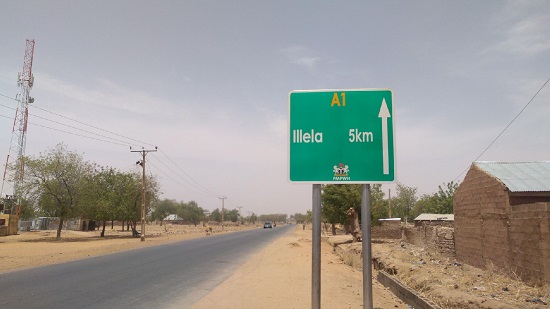
Most commercial motorcycle riders were seen begging their way out of the illegal checkpoints, while unlucky ones were forced to part with N200. The scene was not uncommon on the routes. Their earnings are often used to “settle” security agents on illegal patrol at some designated paths to extort them.
“We used to pay between N100 and N200 while passing each checkpoint, but not every time. Sometimes, we only allow our passengers to pay the fee; it depends,” Adamu said.
Less than five minutes after, we arrived on the shore of Niger Republic through Konni, a dusty town with an important market and transport hub. It is located in the Tahoua Region of the country and lies north of the border from Nigeria. According to Worldometer, Birni N Konni’s current population stands at 48,103.
MEETING NIGERIEN DEALERS
We got to our destination, and saw four middle-aged men sitting under a tree. After exchanging greetings, our motorcyclist introduced us as prospective buyers of rice and vegetable oil from Sokoto.
“Okay, how many bags are they looking for?” the eldest man earlier introduced as Alhaji inquired from this reporter. Before our arrival, the motorcyclist had told us of a famous Nigerien rice merchant simply known as ‘Alhaji’ in Konni town.
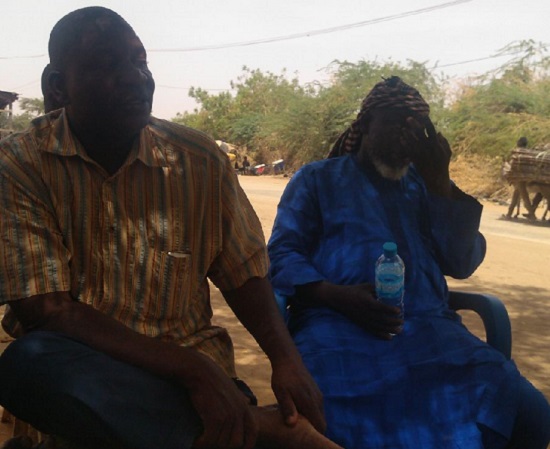
Much had been said about Alhaji before my meeting. He is described as a “notorious” trader who owns a sizeable warehouse near Konni border, and his store serves as a temporary destination for varieties of rice, vegetable oil and other cereal products which are freely available in the country’s open market.
Adamu’s submission about Alhaji indicated a typical business alliance that has been established over a period of time. Findings showed that most of the traders in Niger Republic have trusted commercial motorcyclists that often serve as “links” to connect with new customers. They are part of the business chain to share the profit at the end of a successful deal.
After Alhaji’s inquiry, we demanded to know how much a bag of rice of tomato brand would cost at wholesale price, to which he responded: “We only have other brands and it is sold for N12,800 while tomato brand is sold for N14,000.”
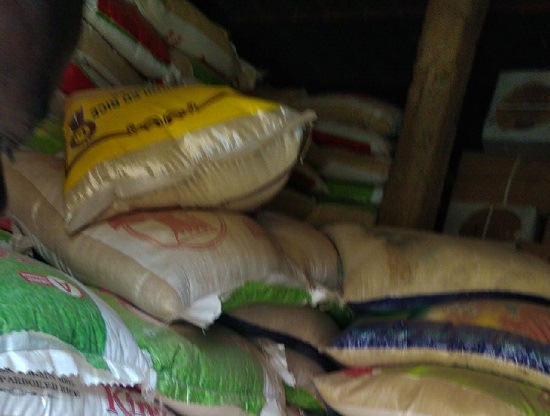
It is common to trade with both Nigeria’s naira and Niger Republic’s adopted West African CFA denomination in the open market. The dealer, without hesitation, put a call through to the store keeper. “My boy is coming to open the store. My type of rice is well known in Nigeria market. If you are satisfied when you see it, you can let us bargain further. But, be rest assured that you can only get a better price from me if you are buying above 20 bags,” he maintained while making his way toward his Honda motorcycle. As he was about to zoom off, he mandated a partner to take charge of the deal to represent his interest.
In less than 10 minutes, the store keeper, simply identified as Aliyu, arrived and ushered us into his boss’ warehouse. The store houses stacks of bags of rice and gallons of vegetable oil of different varieties. In Niger Republic, the dealers have a clearance paper obtained from the border securities after paying a token, which is then issued to a prospective customer before moving their goods outside the country’s territory.
UNCOMMON MODE OF TRANSPORTATION
After a long negotiation, we agreed a deal to purchase at least 50 bags of available rice at the cost of N12,500 each. My guide asked for the available and easy means of moving the goods across Nigeria’s shore since the borders were shut. As usual, Adamu was the first to indicate interest. “What type of means of transportation do you want?” he asked and without waiting for a response, continued: “If you want my motorcycle to convey it, I will do the job.”
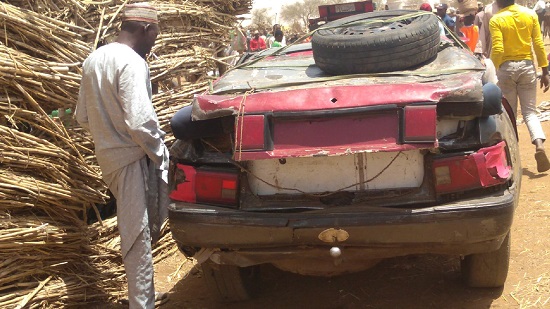
“The closure of the border is really affecting our business and the fuel scarcity is also biting harder. To further buttress his points, he disclosed that a litre of fuel at the black market is sold for N300, whereas it sold between N180 and N200 — this happened after the federal government placed an embargo on movement of petroleum products within border towns.
“Before, we carry a bag of rice for N500 across to Illela town where any contracted vehicle could charge a minimum of N900 per bag. But now, we charge N800 per bag while vehicle that will take it from Illela to Sokoto town could charge up to N1,500 per bag. We will then give settlement at various illegal checkpoints mounted by security personnel.
“How could a motorcycle designed for a passenger be used for conveying goods meant for a lorry?” this reporter asked, and Adamu answered: “I load between five and seven bags of rice at a go. In less than five trips, I’m done with your goods. That is how we do it.”
When asked on the easy way to convey the goods across the destination, he said: “It depends on the contraband we’re contracted to convey. If it is rice, used clothing materials, vegetable oil, we switch to the route that passes through Tabanni, Gidan Ketsu to arrive at Nigeria territory. We also have Gani, Kasheni, Mungankan, Kwadagla, Kesguda routes. I can also get those using donkeys and camels for the movement across the border. It depends on your choice but moving the goods with motorcycle is faster and safer.”
DONKEYS, CAMELS TO THE RESCUE
The return trip to Illela was less stressful, except for the self-clearance at the three checkpoints. We stopped at the famous Kara international market. The market has a century-old livestock hub in West African countries. Our new guide, Aminu DanIlela, narrated how the market has remained a hub for animal riders whose smugglers were often contracted to execute the task of moving specified contraband across the border.
“This is where you can convey your goods through donkeys or camels. They charge you less than vehicles and motorcycles,” he said, adding that a donkey can endure between 10 and 15 bags of rice using a truck attached to its back, while the camel takes between 15 to 20 bags of rice and can go quite a distance at night and daytime.
“These set of riders know how to control camels and donkeys for a long distance journey. They converge here mostly on market days as a meeting point for anybody that wants to engage their services. If you can wait till dawn, you will see them moving towards routes leading to borders with their concealed goods,” Hasimu Maiakwai, another livestock feeds seller, said.
It is common knowledge to security agencies that every new dawn, smugglers are devising new techniques to get their contraband across the border. This may have prompted the federal government to establish a border drill, a joint operation involving the Nigerian Army, Nigeria Customs Service, Nigeria Immigration Service, the Nigerian Police, as well as the Department of State Security. The essence, as gathered, is to secure against any form of trans-border trade and influx of illegal migrants.
Speaking on the development, Abdullah Sadiq, an animal scientist, said the animal has remained an old means of transportation, but expressed dismay that smugglers have explored this method for selfish gain. “These animals, especially camels, have powerful muscles which allow them to carry heavy loads over long distances. A camel can carry as much as 450kg/990lbs, but a usual and more comfortable cargo weight is 150kgs/330lbs. So, you can imagine the volume of contraband these animals can move across the border,” Sadiq said.
“Our security personnel need to be equipped with modern and sophisticated equipment, especially for surveillance purposes. It is possible to have CCTV across our territories to monitor this menace. If government is sincere with political will, most of these insecurity or smuggling challenges can be curtailed along our territory.”
In 2017, the two chambers of the national assembly said the nation was losing about N14 trillion to smuggling and other security leakages. While the senate said goods worth N7 trillion are smuggled into Nigeria every year, the house of representatives hinted that the nation was incurring an annual loss of N7 trillion due to security leakages in the maritime sector.
‘WITH SMUGGLERS’ NEW TACTICS, WE ARE HANDICAPPED’
A cross-section of security personnel interviewed on the development admitted that the fight against illicit trade is actually taking a new dimension. They lamented that despite routine and intensive land patrols, smugglers are determined to have their way at all costs. A customs officer who was in the company of this reporter during the visit said the compromising attitude of some security personnel is hampering the war against smugglers.
“As you can see, there is no movement in an out of the border posts we are manning. The issue here is that of porous routes which was caused by climate change. Our territory has been encroached by desertification. It is a nature thing that we cannot control,” he said.
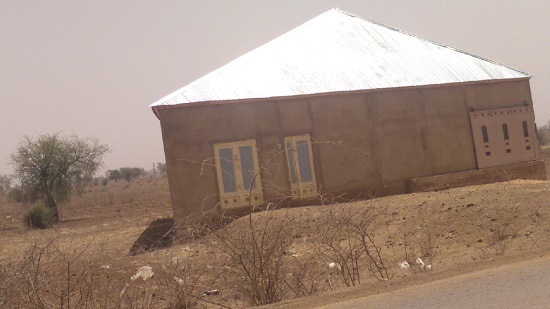
“Another thing is that since the smugglers’ aim is to evade arrest and not to be intercepted while moving their illegitimate goods by customs operatives, they often connive with these villagers by using their camels or donkeys to convey these goods across the border through bush paths, but we will continue trying our best.”
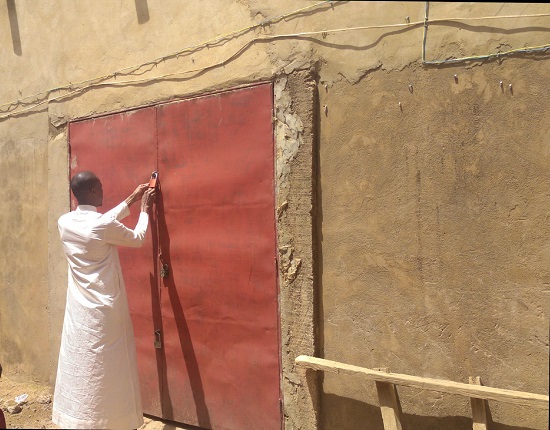
When contacted, Joseph Attah, spokesman of Border Drill, Operation Swift Response, confirmed that animals are used to ferry goods across the border, but noted that the operation coordinated by the office of the national security adviser (ONSA) is doing a lot to secure the nation’s borders, especially to address illegal trans-border activities.
“We are aware of this tactic which is inevitable, but with the partial closure, the act has been drastically reduced,” he said.
He listed some of the achievements recorded, which included the arrest of 697 illegal immigrants, while contraband seized included 86,602 of 50kg bags of foreign rice and 695 bags of NPK fertiliser.
Attah added that the estimated monetary value of the seized items stood at N7 billion, and promised that the federal government would continue to engage neighbouring countries on the need to comply with the ECOWAS protocol on transit.
This is a special investigative project by Cable Newspaper Journalism Foundation (CNJF) in partnership with TheCable, supported by the MacArthur Foundation. Published materials are not views of the MacArthur Foundation.
Add a comment
